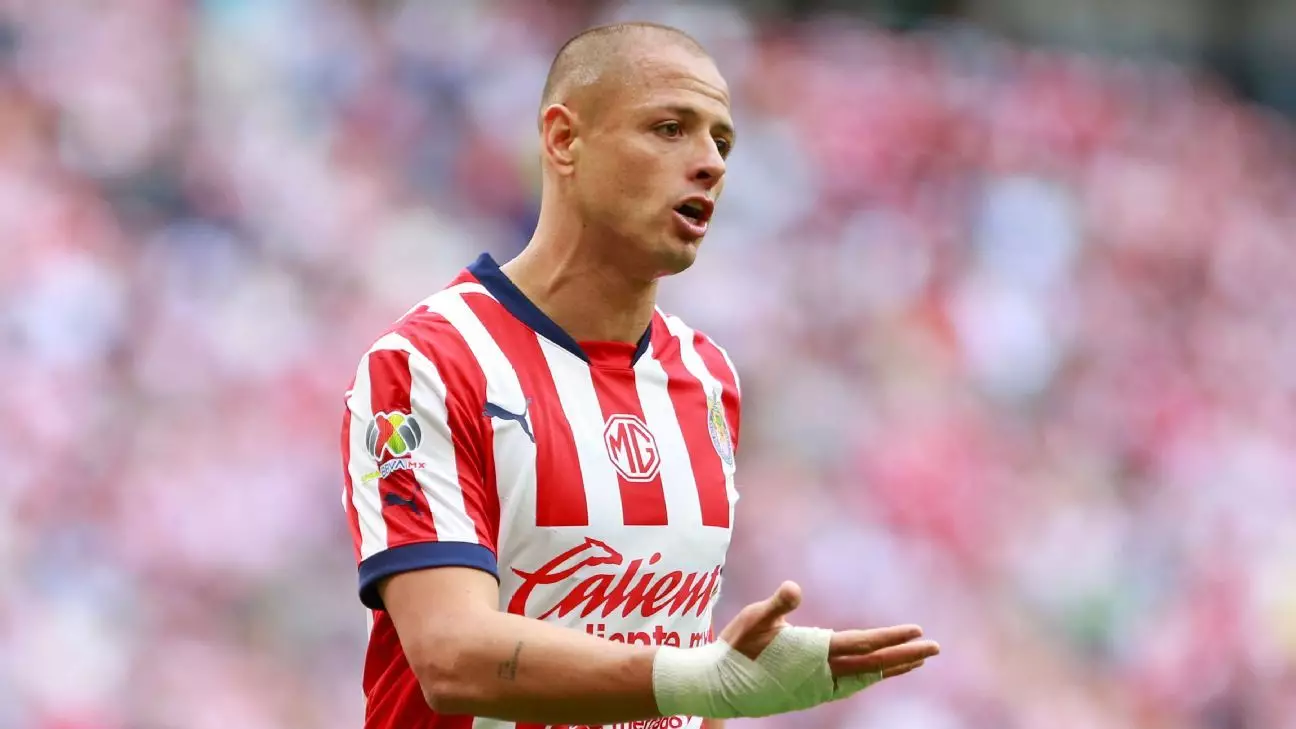In an era where social media acts as both a megaphone and a mirror, Javier “Chicharito” Hernández’s recent comments serve as a stark reminder of how quickly perceptions can shift. What begins as a casual comment can spiral into a cultural debate, especially when it touches on sensitive societal issues such as gender roles and masculinity. Hernandez, a revered football icon, found himself at the epicenter of controversy, revealing that even the most celebrated figures are vulnerable to scrutiny when their words clash with evolving communal values. His initial remarks, laden with stereotypes and dismissive tones towards women, ignited a backlash that no amount of fame or past achievements could shield him from. This incident underscores a fundamental truth: in the digital age, words hold profound power, and ignorance or insensitivity—whether intentional or superficial—can erode a reputation in moments.
Confronting Error and the Path Toward Authentic Growth
Hernández’s public apology signifies an important, albeit delayed, step toward acknowledgment and accountability. His statement, which expresses regret for causing “confusion or discomfort,” hints at an understanding that his words may have been harmful and misaligned with contemporary societal standards. Yet, it also raises questions about authenticity—are these words born out of genuine reflection or simply a strategic attempt at damage control? His recognition of the need to “act with respect, humility, and responsibility” demonstrates an awareness that personal growth requires more than superficial apologies; it demands consistent action and self-awareness. The sports icon’s willingness to listen and reflect signals an essential pivot—acknowledging personal flaws is the first step, but the real challenge lies in transforming that realization into meaningful change. Hernández’s journey mirrors a broader societal imperative: champions must evolve, especially when their influence extends beyond the pitch into the cultural fabric.
Societal Expectations and the Role of Public Figures
The intense scrutiny Hernández faces from the Mexican government, the federation, and the public illuminates the complicated expectations placed on public figures. While athletes are celebrated for their sporting prowess, they are increasingly held accountable for their social and political stances. President Claudia Sheinbaum’s pointed critique—labeling Hernández’s remarks as “very sexist”—embodies a demand for higher moral standards from those who hold influence. For Hernandez, the clash isn’t just about language; it’s a confrontation with societal progress and the ongoing fight against ingrained stereotypes. It raises critical questions: Should athletes serve as role models beyond their sport? Should their personal opinions be scrutinized when they comment on societal issues? The truth is, public figures carry a responsibility, whether they like it or not. Their words can either reinforce harmful stereotypes or challenge outdated notions—an opportunity Hernández now has to seize.
The Power of Self-Refinement and Cultural Shift
Hernández’s recent efforts to frame his missteps as a desire for personal growth echo a larger cultural movement: the push for introspection, empathy, and genuine reform. His engagement with life coach Diego Dreyfus and the visible change in his online persona suggest that he is attempting to align his public image with modern values. While critics may remain skeptical about his sincerity, his decision to openly confront his errors signals an understanding that change begins from within. The debate surrounding his comments also underscores a collective desire to redefine masculinity—moving away from aggressive stereotypes toward a version rooted in respect, equality, and emotional intelligence. Hernández’s willingness to reflect and adapt could serve as a catalyst for others in the sports world and society at large, illustrating that growth, albeit uncomfortable, is an essential part of progress.
Chasing Redemption in a Society Demanding Accountability
Hernández’s story is far from over. As a distinguished athlete with a significant platform, he possesses the potential to turn this controversy into a lesson—not just for himself but for many who look up to him. The path to redemption is paved with consistent actions and unwavering commitment to values that uplift rather than divide. His public acknowledgment of mistakes, coupled with genuine efforts to change, can redefine what it means to be a role model in today’s culture. Ultimately, this incident provokes a broader conversation about accountability, empathy, and the importance of evolving societal standards. Hernandez’s challenge is not simply to apologize but to demonstrate through his actions that he truly understands the importance of respectful dialogue and progressive thinking. Only through such authentic transformation can he regain trust and continue inspiring beyond the football pitch.

